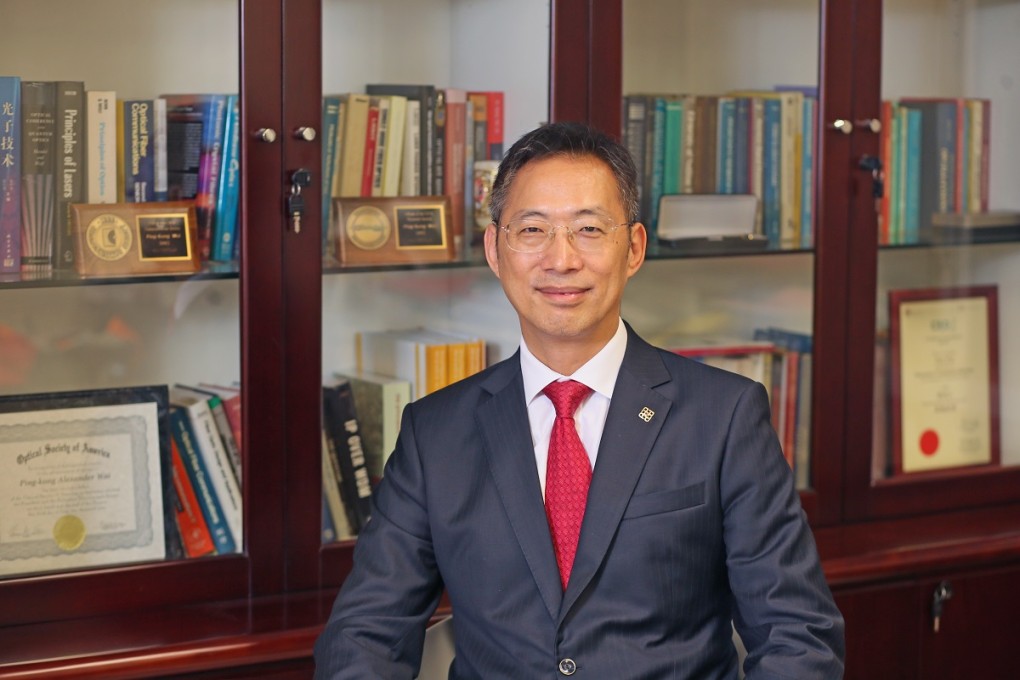Pushing the boundaries of research
Professor Alexander Wai, PolyU Vice President (Research Development) says whether researching pioneering fibre optic railway technologies, investigational new drugs (IND), robotics or food safety, the goal is always to advance the frontiers of knowledge while enhancing the well-being of the local, mainland and international community.

[Sponsored Article] Recognised internationally as a progressive higher-education institution, The Hong Kong Polytechnic University (PolyU) is dedicated to making a positive contribution to the world’s development through its innovative research and quality education.
Emphasising the focus PolyU places on research with impact, Professor Alexander Wai, PolyU Vice President (Research Development) says whether researching pioneering fibre optic railway technologies, investigational new drugs (IND), robotics or food safety, the goal is always to advance the frontiers of knowledge while enhancing the well-being of the local, mainland and international community.
"Our professors have developed a reputation for taking research from the laboratory into the real world, where it has practical use with meaningful benefits," Wai says. An example of this is the proprietary optical fibre sensing technology developed by PolyU and installed on train tracks all over Hong Kong, used to monitor mission-critical conditions and track components. The first-in-the-world monitoring system has also been installed on the mainland's Beijing-Shanghai High-Speed Rail Link and will soon be installed in the two busiest lines of Singapore's metro network. Further connecting PolyU research to the real world by improving service reliability; the ground-breaking maintenance system is expected to become a trend in the global railway industry.
Wai says over the past eight decades PolyU is proud to have laid down many significant research milestones that address important issues and align with the school’s motto: "To learn and to apply, for the benefit of mankind.” Currently undergoing clinical trials in Hong Kong, the US and Europe, a recent example is a new drug used for treating liver cancer known as "BCT-100". Discovered by PolyU researchers, the drug has become Hong Kong's first IND to receive approval from the US Food and Drug Administration (FDA).
Meanwhile, with researchers around the world seeking new ways to increase solar energy conversion efficiency, PolyU has successfully developed perovskite-silicon tandem solar cells with the world's highest power conversion rate of 25.5percent in mid-2016, better than existing silicon solar cells in the market.